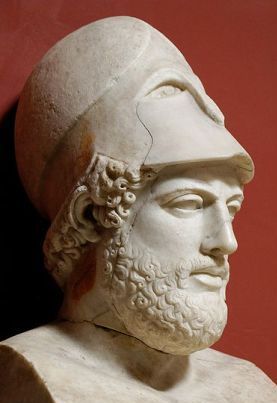GREAT WALL OF CHINA History of the Great Wall of China: The Great Wall of China is the national military defense project in the cold weapon war era with the longest time and the largest amount of construction in the world. It condenses the sweat and wisdom of our ancestors and is the symbol and pride of the Chinese nation. According to historical records, since the Warring States period, more than 20 vassals and feudal dynasties have built the Great Wall. The earliest was the Chu Kingdom. To defend the nomadic or enemy countries in the north, they began to build the Great Wall. Subsequently, Qi, Yan, Wei, Zhao, Qin, and other countries also began to build their own Great Wall for the same purpose. After Qin unified the six countries, the famous emperor Qin Shihuang sent Meng Tian northward to the Xiongnu, connecting the Great Walls of various countries. From Linyao in the west to Liaodong in the east, it stretched for more than 10,...
Ancient Greece was one of the greatest civilizations in history. They put an emphasis on the value of the person and education. It was their people that made them great.
Here are 25 of the most famous people from Ancient Greece:
Greek Philosophers
- Socrates - First of the great Greek Philosophers. He is considered by many to be the founder of Western philosophy.
- Plato - Student of Socrates. He wrote many dialogues using Socrates as a major character. He also founded the Academy in Athens.
- Aristotle - Student of Plato. Aristotle was a philosopher and scientist. He was interested in the physical world. He was also teacher to Alexander the Great.
- Aeschylus - A Greek playwright, he is considered the father of the tragedy.
- Sophocles - Sophocles was probably the most popular playwright during Greek times. He won many writing competitions and is thought to have written over 100 plays.
- Euripides - The last of the great Greek tragedy writers, Euripides was unique in that he used strong women characters and intelligent slaves.
- Aristophanes - A Greek playwright who wrote comedies, he is considered the father of the comedy.
- Aesop - Aesop's fables were known for both talking animals as well as teaching a moral. Historians aren't 100% sure if Aesop really existed or was just a fable himself.
- Hesiod - Hesiod wrote a book that was about Greek rural life called Works and Days. This helped historians to understand what the daily life for the average Greek person was like. He also wrote Theogany, which explained a lot about Greek Mythology.
- Homer - Homer was the most famous of the Greek epic poets. He wrote the epic poems the Iliad and the Odyssey.
- Pindar - Pindar is considered the greatest of the nine lyric poets of Ancient Greece. He is most known today for his odes.
- Sappho - One of the great lyric poets, she wrote romantic poetry that was very popular in her day.
- Herodotus - A historian who chronicled the Persian Wars, Herodotus is often called the Father of History.
- Thucydides - A great Greek historian who was known for the exact science of his research, he wrote about the war between Athens and Sparta.
- Archimedes - He is considered one of the great mathematicians and scientists in history. He made many discoveries both in math and physics including many inventions.
- Aristarchus - An astronomer and mathematician, Aristarchus was the first to put the sun at the center of the known universe rather than the Earth.
- Euclid - The Father of Geometry, Euclid wrote a book called Elements, likely the the most famous mathematical textbook in history.
- Hippocrates - A scientist of medicine, Hippocrates is called the Father of Western Medicine. Doctors still take the Hippocratic Oath today.
- Pythagoras - A scientist and philosopher, he came up with the Pythagorean Theorem still used today in much of geometry.
- Alexander the Great - Often called the greatest military commander in history, Alexander expanded the Greek empire to its greatest size, never losing a battle.
- Cleisthenes - Called the Father of Athenian Democracy, Cleisthenes helped to reform the constitution so the democracy could work for all.
- Demosthenes - A great statesman, Demosthenes was considered the greatest orator (speech giver) of Greek times.
- Draco - Famous for his Draconian law that made many offences punishable by death.
- Pericles - A leader and statesman during the golden age of Greece. He helped democracy to flourish and led great building projects in Athens that still survive today.
- Solon - Solon is usually credited with laying the foundations and ideas for democracy.

Pericles - Greek General and Leader - by Cresilas

Good content. Well information. Thanks for sharing. It will be kind enough if you can also see my page and help each other to grow
ReplyDeleteMy link is https://bomsomguys.blogspot.com/2020/06/list-of-weight-loss-goals.html
Thanks a lot for your kind support
Best Regards
BOMSOMGUYS.BLOGSPOT.COM